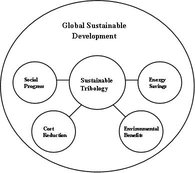I authored a paper with colleagues from the General Engineering (Unit of Assessment 15), including Prof. M. Hadfield, Dr. B. Thomas, S. Martinez Noya, and our research sponsors Mr. I. Hensaw (Energetix Group PLC) and Mr. S. Austen (RNLI). The publication is titled “Future Perspectives on Sustainable Tribology” and was submitted to Renewable and Sustainable Energy Reviews Journal. It has recently been accepted (22 Feb 2012) for publication. The article is the result of a two-month support for impact (REF) exercise which took place last summer (June-July 2011) and was sponsored by the Research Development Unit (R&KEO) of Bournemouth University.
The interesting fact about the article is that the particular journal of Renewable and Sustainable Energy Reviews has an impact factor of 5.367 (last five years) and is 9th out of 2009 Engineering Journals Worldwide (according to 2011 impact factor rankings) while its overall Ranking Worldwide among any Journal Indexed on Scopus is 268 out of 18854 Journals.
I would like to post this success on the Research Blog in order to show that support for impact at least in my case was worthwhile as it triggered my interest to write this “impact” paper with colleagues from Sustainable Design Research Centre (SDRC). The paper highlights the future perspectives of Sustainable Tribology by examining the economic, environmental and social impact of three tribological case studies worldwide. Each case study highlights one aspect of a number of ongoing interlinking research strands developed by the SDRC at Bournemouth University. The importance of Environmental Engineering through Sustainable Tribology solutions in our epoch is emphasized, showing that sustainability can be achieved to a significant extent through effective sustainable and environmental friendly engineering solutions, stimulating sustainable development and providing stability to our world embracing an anthropocentric and viable growth to our societies through effective sustainable solutions (figure 1).
 To conclude, I would like to thank all the co-authors for their valuable help and contribution to the specific article while I would also like to express my regards to Prof. Mark Hadfield for the position he offered to me as a research assistant for REF support during that period and for his valuable guidance. I strongly believe it was a really beneficial project for myself as well as for Bournemouth University.
To conclude, I would like to thank all the co-authors for their valuable help and contribution to the specific article while I would also like to express my regards to Prof. Mark Hadfield for the position he offered to me as a research assistant for REF support during that period and for his valuable guidance. I strongly believe it was a really beneficial project for myself as well as for Bournemouth University.












 Nursing Research REF Impact in Nepal
Nursing Research REF Impact in Nepal Fourth INRC Symposium: From Clinical Applications to Neuro-Inspired Computation
Fourth INRC Symposium: From Clinical Applications to Neuro-Inspired Computation ESRC Festival of Social Science 2025 – Reflecting back and looking ahead to 2026
ESRC Festival of Social Science 2025 – Reflecting back and looking ahead to 2026 3C Event: Research Culture, Community & Cookies – Tuesday 13 January 10-11am
3C Event: Research Culture, Community & Cookies – Tuesday 13 January 10-11am Dr. Chloe Casey on Sky News
Dr. Chloe Casey on Sky News ECR Funding Open Call: Research Culture & Community Grant – Application Deadline Friday 12 December
ECR Funding Open Call: Research Culture & Community Grant – Application Deadline Friday 12 December MSCA Postdoctoral Fellowships 2025 Call
MSCA Postdoctoral Fellowships 2025 Call ERC Advanced Grant 2025 Webinar
ERC Advanced Grant 2025 Webinar Horizon Europe Work Programme 2025 Published
Horizon Europe Work Programme 2025 Published Update on UKRO services
Update on UKRO services European research project exploring use of ‘virtual twins’ to better manage metabolic associated fatty liver disease
European research project exploring use of ‘virtual twins’ to better manage metabolic associated fatty liver disease